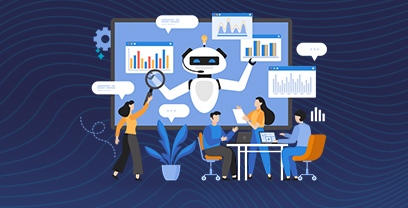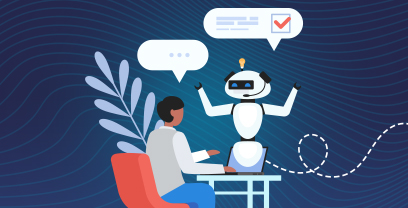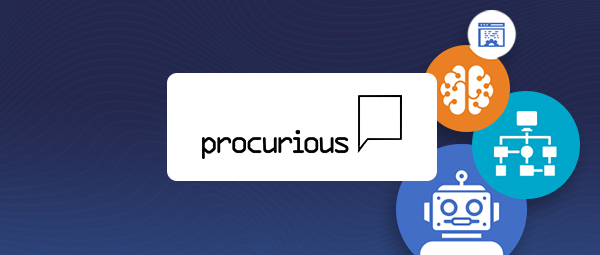In recent years, procurement processes have evolved significantly, particularly with the arrival of advanced technologies like Generative AI (GenAI). By enhancing supplier interactions, streamlining contract management, and optimizing communication and category strategies, Generative AI positions procurement teams to meet and exceed modern challenges.
Sushil Krishna Srinivasan, Managing Director Supply Chain & Operations – Sourcing & Procurement from Accenture in Qatar and Suwaid Al Badi, Head of Procurement and Contract at Masdar City in the United Arab Emirates have recently shared their insights with us.
Generative AI: Threat or Ally?
By leveraging Generative AI in Procurement, professionals across the whole Source-to-Pay process can improve efficiency and enhance decision-making. “The beautiful part about Generative AI is that, historically, technology replaced humans with automation, and was seen as a threat.
The most unique thing with Gen AI is that technology is becoming more human” suggested Sushil Krishna Srinivasan, Managing Director Supply Chain & Operations – Sourcing & Procurement at Accenture based in Doha, Qatar, in a recent webinar. It is not about replacing the human workforce.
“Together we [can generate] a lot of value. It is going to be your virtual assistant who helps you achieve what you are expected to achieve, [it] accelerates and facilitates processes […] so that you are able to focus on the strategic work.”
To facilitate adoption across Arabic-speaking regions, Ivalua is the first solution provider to develop a comprehensive library of specific AI use-cases tailored to the Middle East and offers its entire interface in Arabic.
From processes like contract lifecycle management to everyday tasks like drafting emails, a multilingual AI assistant can be a vital ally for procurement professionals in the Middle East and other Arabic speaking regions.
Gen AI Use Cases Across the S2P Process and Supply Chain
Example: Streamlining Contract Lifecycle Management
When it comes to Contract Lifecycle Management, generative AI can help saving valuable time and resources and turn contracts into a source of value and insight. Ivalua’s AI-powered virtual assistant IVA can, within seconds, scan contracts and provide a concise summary in Arabic.
Capabilities like generating first drafts, suggesting clause modifications, and highlighting potential risks speed up contract creation and negotiation but also help ensure that legal and compliance aspects are thoroughly addressed.
Sushil pointed out that when renewing contracts or changing T&Cs, “AI can help identify red flags or deviations based on past performance and what my colleagues from legal can potentially agree to or not.”

Example: Generative AI in Email Communication
Generative AI has revolutionized communication by crafting messages that consistently convey the desired tone and clarity, no matter the audience—be it internal stakeholders or external partners.
This capability dramatically cuts down on the time spent drafting emails, enabling procurement professionals to dedicate more of their energy to strategic initiatives. As Sushil put it: “GenAI serves as a virtual assistant, helping you achieve strategic tasks while managing the nitty-gritty details.”

AI, ESG, and Sustainable Procurement
Since COP 28 in Dubai, sustainability has become a top priority in the region. Procurement teams are under increasing pressure to help reduce Scope 3 emissions, among other challenges.
A major focus is on enhancing the supplier ecosystem by managing and educating suppliers to ensure the entire value chain contributes to reducing carbon emissions. Procurement will play a decisive role in ensuring these efforts align with broader sustainability goals.
AI in procurement plays a crucial role in enhancing ESG compliance by identifying potential risks in contracts. It can also generate notifications and alerts concerning ESG-related KPIs, helping you stay informed and proactive. Additionally, AI analyzes environmental data across sourcing and sustainable procurement processes to identify and prioritize opportunities for improvement.
Why Masdar City chose Ivalua to Digitize Procurement
Masdar City, in Abu Dhabi, is a cutting-edge urban development focused on low-carbon innovation. A global business and technology hub, it has fostered a vibrant ecosystem where organizations collaborate to create spaces that drive sustainability and technological innovation.
The decision to transform procurement processes digitally was driven by the need to integrate multiple disconnected electronic systems into a single, unified platform. This shift aimed to streamline operations, reduce inefficiencies, and align with the city’s sustainability goals across the whole supply chain.
This is why they were looking for a solution to make the selection of and collaboration with diverse, sustainable and ethical suppliers easier while being able to better monitor performance and compliance.
After evaluating multiple options, Masdar City, home of the Mohamed bin Zayed University of Artificial Intelligence, chose Ivalua as their procurement transformation solution. Suwaid Al Badi, Head of Procurement and Contract at Masdar City, explained in a recent webinar that the early adoption and integration of Artificial Intelligence into Ivalua’s solutions resonated strongly with Masdar City’s forward-thinking approach to technology.
According to Suwaid two of the most important benefits of Ivalua’s AI powered assistant IVA are that “it’s completely secured [and] it makes you more strategic”. Watch the webinar.
How to make Generative AI in Procurement a Success
While Generative AI has the potential to transform procurement, supplier relationships and everyday work, it is not a solution in itself. Only if applied correctly can organizations tap into its full potential.
While AI-powered solutions like Ivalua’s come with a library of built in use-cases that are accessible in simple button format (i.e. “Summarize contract”) or in a more conversational format like IVA, Ivalua’s virtual assistant, “Generative AI is not a one-time transformation, but it’s a continuous evolution” said Sushil Krishna Srinivasan.
“Once you have a Gen AI [solution] in place, also think of the right operating model, the talent that you want to build in so that you can continue to evolve.” That’s why scaling up should always be part of a procurement transformation and AI integration roadmap.
Large Language Models (LLMs) evolve and get more specialized, or your company policies may exclude or mandate a specific LLM. Therefore, your AI-powered procurement solution should be LLM agnostic so that you can change the LLM(s) used without having to replace your procurement technology.
To ensure maximum agility, ensure the technology you select offers you the capability to fine tune or create new use cases without vendor dependencies and expert coding knowledge.
A provider that offers the right support like, Ivalua’s regular AI Bootcamps, and technological capabilities helps you take complete ownership of your solution and enables you to build your own use cases to support your evolving business needs.
At Ivalua, we leverage our unified platform and data model to create a no-code configuration for generative AI. This setup allows any configurator to seamlessly take data from the screen, database, or any documents and create requests effortlessly.
Conclusion
AI-driven tools significantly enhance efficiency and empower procurement leaders to make smarter decisions. With Artificial Intelligence firmly positioned as a staple of modern business, it’s crucial for organizations to view AI in procurement as an opportunity rather than a threat.
In a region that is built on personal relationships and trade, organizations must see AI as an opportunity to focus on growth and people, supported by AI powered technology. The energy and drive that already exists within the Gulf can be supercharged by AI and help them leapfrog more backward facing regions with legacy ERPs. The ability to remove repetitive tasks and provide decision agility can turn companies from followers to leaders overnight.
Those who fail to develop their AI integration roadmaps risk being left behind, as proactive competitors are already advancing beyond integration and leveraging existing AI use cases to their advantage.
Further reading:
What is Saudi Vision 2030 and How Will It Impact Procurement?
How Sustainability is Reshaping Procurement in the Middle East




